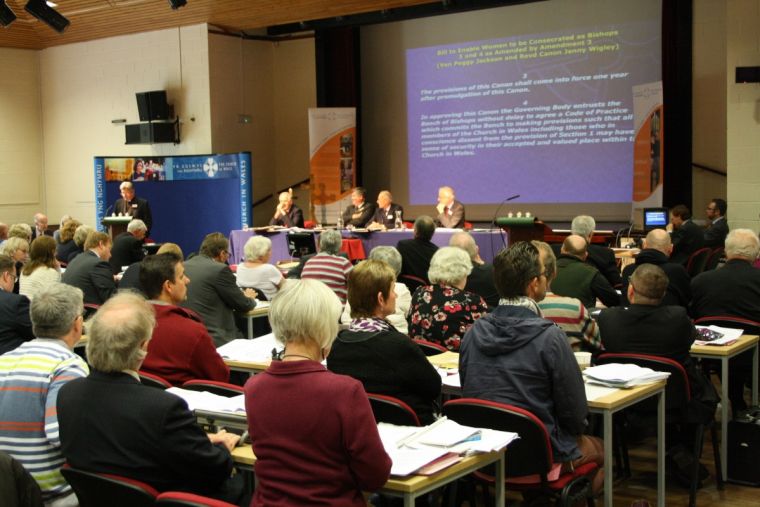Church in Wales votes to consecrate women as bishops

The Governing Body of the Church in Wales has passed a Bill to enable women to be consecrated as bishops.
The Bill had the unanimous support of bishops and was passed by a majority in the House of Laity - 57 yes, 14 no, and two abstentions - and in the House of Clergy - 37 yes, 10 no, no abstentions.
The historic vote was made during a meeting of the Governing Body at the University of Wales Trinity Saint David in Lampeter on Thursday.
The Bill includes a "code of practice" to be drawn up by the bishops for those who in conscience cannot accept the authority of women bishops.
The Bill was proposed by the Bishop of St Asaph, Gregory Cameron, and seconded by the Bishop of Bangor, Andy John.
It has been a long journey to get to this stage after supporters of women bishops failed to secure the vote in 2008.
Addressing members of the Governing Body, the Archbishop of Wales, Dr Barry Morgan, said, "Thank you for the way in which the debate has been conducted and I hope you will trust us as bishops to prepare a code of practice."
The outcome has been welcomed by the Church of England Bishop of Hereford, the Right Reverend Anthony Priddis said he was delighted by the very clear majority vote in favour of women and hoped that the Church of England would follow suit.
"It is good news and a move I hope we in England will be following as soon as possible," said Bishop Anthony. "We don't want glass ceilings anywhere and certainly not in the church."
He added: "We know how effective women priests can be and know it is over time in giving them the responsibility of being bishops. They deserve it and so does the Church of England."
WATCH, the pro-women bishops group in the Church of England, said the Church in Wales' vote was "encouraging".
The Reverend Rachel Weir, Chair of WATCH said: "This is fantastic news and we are delighted that the Church in Wales has opted for simple legislation enabling women to become bishops. The vote will provide a welcome boost to the morale of female clergy well beyond the welsh borders and help to set a positive context for our own ongoing legislative process in the Church of England."











